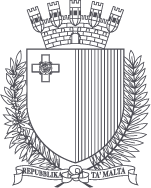PROTECTION OF THE WHISLTEBLOWER
In September 2013, the Maltese government implemented the Protection of the Whistleblower Act, 2013: an act to make provision for procedures that provide protection to persons who report improper practices and wrongdoings at the workplace, in both the private sector and the public administration.
The Directive – (EU) 2019/1937 of the European Parliament and of the Council of 23 October 2019 on the protection of persons who report breaches of Union law – was adopted on 23 October 2019 and entered into force on 16 December 2019. This has led to the amendment of the Protection of the Whistleblower Act (CAP 527 of the Laws of Malta) which came into force in December 2021.
Anyone who wants to raise the alarm on an act of corruption or illegality can do so safely within the Whistleblower Act. By the implementation of this legislation the citizens are given the right to report abuses, knowing they will be protected by law.
Internal Reporting
Reporting persons can report wrongdoings to an internal officer who will refer the report for further follow-up while retaining the identity of the reporting person in strict confidentiality. The reporting person will remain anonymous and therefore protected from retaliation at the workplace.
External Reporting
If no such internal channel is in place, or the report is not investigated effectively, the reporting person may report externally to one of the competent authorities mentioned in the law. These include: the Commissioner of Revenue (CfR), Financial Intelligence Analysis Unit (FIAU), Malta Financial Services Authority (MFSA), Commissioner for Voluntary Organisation (CVO), Permanent Commission Against Corruption and the Ombudsman.
For Public Sector Employees External Whistleblowing Officer has been appointed within the Cabinet Office.
Each Government Ministry is represented by a Whistleblowing Reporting Officer (WRO). The WRO is responsible for receiving internal disclosures and addressing the concerns raised by the whistleblower accordingly.
The contact details of the Whistleblowing Reporting Officer within the Office of the Prime Minister are outlined below:
Whistleblowing Reporting Officer: Jane Caruana
Contact Number: 25981305
Contact Email: whistleblower.meyr@gov.mt
The National Strategy for Education 2024-2030 is a comprehensive plan developed as part of the transformation process within the local education system. With a vision to provide quality education for all, through a person-centred approach, the strategy aims to address the challenges in the current system and ensure that all learners have access to fair and inclusive education.
The National Education Strategy 2024-2030 is a crucial step towards building a skills-based society, preparing students for future challenges. It sets clear targets, through 36 measures and 120 initiatives, all contributing to the overall development of each person and the progress of the nation. This strategy is built on three main pillars: well-being, Growth and Empowerment, and Equity and inclusion. These three pillars were agreed with the internal and external partners, which were consulted at more than 200 meetings during the pre-consultation phase.
This strategy has a defined strategic orientation, which determines the related priorities and objectives, all of which are linked to actual needs. Furthermore, the National Education Strategy 2024-2030 is characterised by strategic projections targeting the needs of 2050. It aims to prepare students to be resilient and emotionally strong, to continue learning throughout life by providing them with essential skills including green skills, digital skills, and values related to global and active citizenship. This ambitious plan is in line with the United Nations Sustainable Development goal 4 (SDG 4) and the environmental, Social and Governance (ESG) targets.
Educators play A central role in the implementation of the National Education Strategy 2024-2030. The strategy aims to give the necessary support to educators to adapt to the various challenges they are facing, including changing demographics and even students exposed in the long term to an online world that does not necessarily match their obligations in the offline world. Educators are key models whose influence impacts on children, adolescents and young adults and the latter’s provision for lifelong learning.






